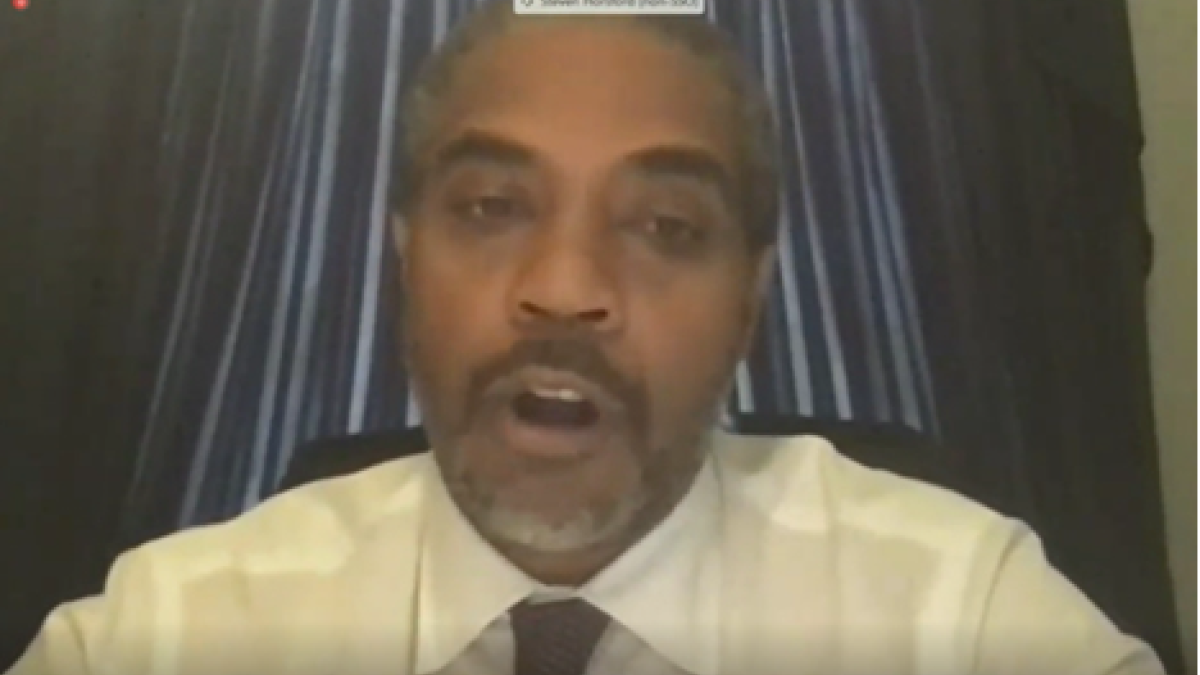Congressman Steven Horsford Advocates for Communities Disproportionately Impacted by COVID-19

Washington, D.C. -- Today Congressman Steven Horsford (NV-04) joined the House Ways and Means Committee for a hearing on the "Disproportionate Impact of COVID-19 on Communities of Color." The Congressman questioned expert witnesses on the structural racism that contributes to the higher rates of infection and death among communities of color in Nevada and across the country.
"The number of COVID-related deaths in the U.S. now exceeds 101,000. This virus has hit every segment of our nation. No one is immune to its effects. What cannot be denied is the disproportionate impact of Covid-19 on the black, Latinx, AAPI, and those in ingenious communities," Congressman Horsford said.
The latest overall COVID-19 mortality rate for Black Americans is 2.4 times as high as the rate for Whites and 2.2 times as high as the rate for the Asian American and Pacific Islander (AAPI) and Latino communities.
In particular, Black Nevadans makeup about 11 percent of Clark County's population, within Congressman Horsford's district, but account for 19 percent of the county's COVID-19 cases where patients' race and ethnicity have been identified. By contrast, patients who are white account for 33 percent of hospitalizations, but 42 percent of the county's population.
The Congressman's prepared remarks and line of questioning are available below:
Thank you, Mr. Chairman for holding this timely and much-needed discussion.
Thank you also to our esteemed panel of experts here today. Your research and feedback have been invaluable to today's discussion.
The number of COVID-related deaths in the U.S. now exceeds 101,000. This virus has hit every segment of our nation. No one is immune to its effects. What cannot be denied is the disproportionate impact of Covid-19 on the black, Latinx, AAPI, and those in ingenious communities.
In my District, African American Nevadans makeup about 11 percent of Clark County's population, but account for 19 percent of the county's COVID-19 cases and 16.3 percent of COVID-19 deaths. In North Las Vegas, where I grew up, African Americans makeup 28 percent of the community and represent 47 percent of the COVID-19 deaths.
Additionally, according to the Southern Nevada Health District, 27 percent of people who have been hospitalized for COVID-19 in Clark County are Latino while the county itself is 31 percent Latino. Latinos represent 17.8 percent of deaths in Nevada. By contrast, the six rural counties in my district have only one reported COVID-19 death.
We have used a lot of words for why this disproportionate rate exists. But there is one word that hasn't been used other than in the opening remarks by our esteemed panel.
Dr. Kendi and Dr. Hildreth, what is the one word we have not sufficiently addressed? By confronting the history of race and racism, how can that improve the programs, practices, policies, and investments?
Thank you Dr. Kendi for reminding us about Frederick Hoffman. His legacy created the conditions for the Tuskegee experiment's atrocities against the Black community and even the injustices committed against Henrietta Lacks whose cells are now used worldwide to do research and find cures for cancer. Unfortunately, many people still believe that behavior, genetics, and DNA are part of the reason why communities of color are suffering more. How can we rid ourselves of that misinformation once and for all?"
Additional Questions:
Dr. Sequist, prior to this hearing, I heard from the Inter-Tribal Council of Nevada, which represents the needs of 27 federally recognized Tribes in our State. Much like the food deserts in Chelsea and Shiprock, mentioned in your testimony, many of our Tribal communities live with severe food shortages. Further, many of our Tribal families live below or just above the poverty line. Can you share how a lack of quality nutrition in a food desert and poor diet impacts the likelihood of contracting COVID-19?
Dr. Fernandez, I appreciated the perspective you shared regarding some of the Latinx patients you treat. I want to share Suzette Rivera from Las Vegas' experience.
Suzette and her husband both lost their employment in March, at the start of the pandemic. Without steady income, they and their young daughter are now facing rental abuse from their landlord and a constant threat to their housing security. As a mixed-status, immigrant family, they fear they have little recourse and support if they lose their housing.
Daniel Dawes writes in his book, "The Political Determinants of Health," that stressors of this nature and trauma can have a profound impact on the health of people of color. In your experience, how has the stressor of housing insecurity or the trauma of living as an undocumented person, impact the likelihood of chronic diseases in the Latinx community?
This question is for Dr. Kendi and Dr. Hildreth. I appreciate you both addressing the historic context of health care for African Americans in this nation. My district has a significant African American and African diaspora community including Ethiopian and Eritrean Americans.
Many folks have shared very real fears about the lack of testing and tracing available to them, especially when African Americans experience higher rates of comorbidities. My community often relies on information disseminated through faith-based channels – our churches. Can you both speak the historical role churches play in providing information to the Black community, and how they can be pivotal in sharing resources and even provide contact tracing and tracking in the future?
Dr. Samoa, I heard from members of the Philippine Nurses Association of Nevada, who shared with me that one of the challenges that many in the AAPI community still face, even those working on the medical frontlines, is clarity of information regarding testing. How can we best use AAPI networks not only to ensure testing is available but also that information is best shared across cultural divides to increase testing, contact tracing, and tracking going forward?
